As a holistic veterinarian, I understand how much you love your poodle and want nothing but the best for them. That’s why I’m here to shed some light on a topic that often gets overlooked – Poodle Eye Health. Poodles are an incredible breed, full of personality, intelligence, and charm. However, they are also prone to certain health issues, particularly related to their eyes.
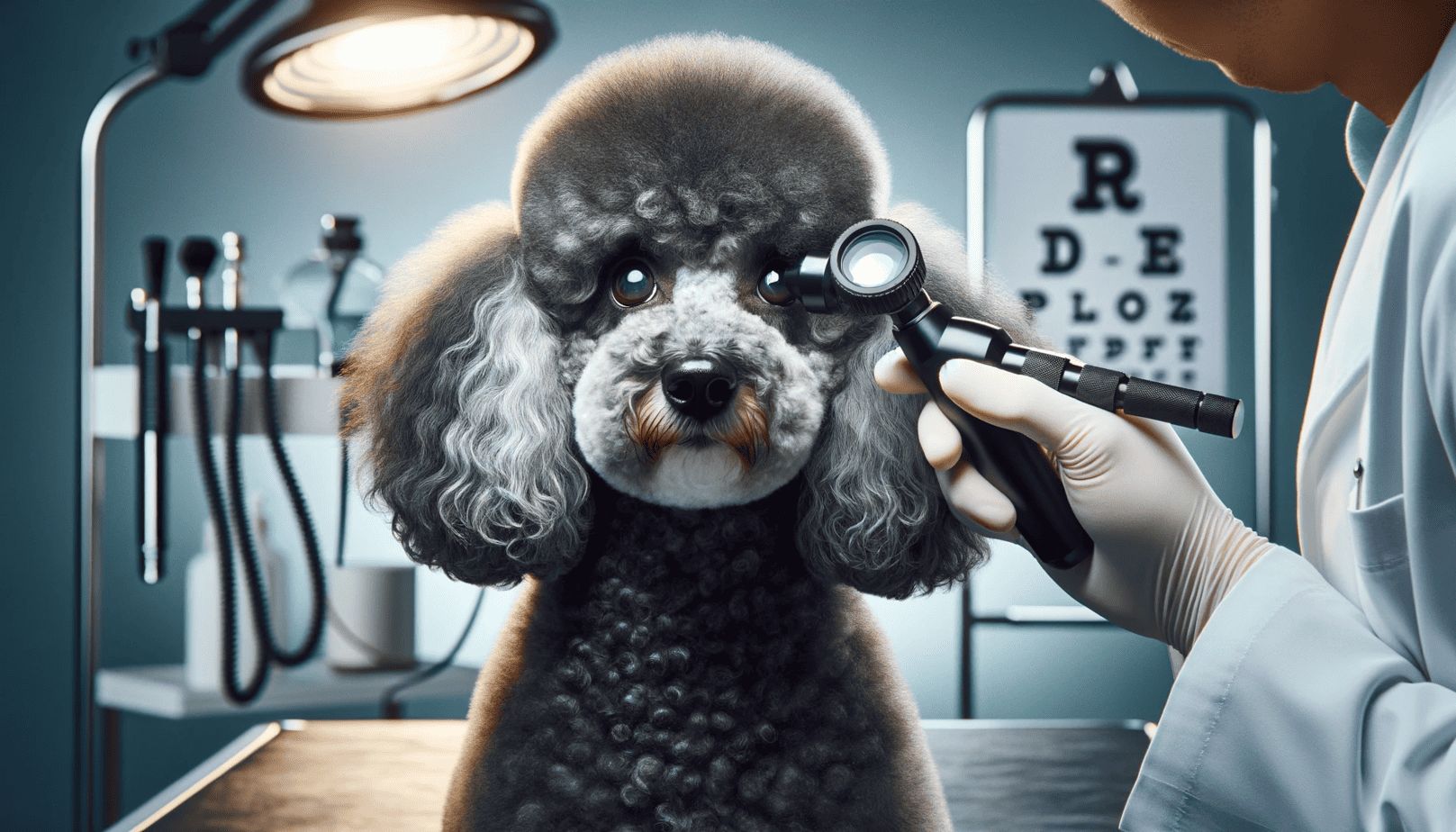
Eye health is crucial for poodles, as it can significantly affect their quality of life. From common conditions like dry eyes and cataracts to more serious issues like Progressive Retinal Atrophy, understanding the potential eye problems your poodle may encounter is the first step to ensuring their well-being.
But don’t worry, I’m here to guide you through it all. In this article, we’ll explore the unique eye structure of poodles, common eye issues they face, and how you can prevent these problems. We’ll also discuss the role of diet and environmental hygiene in maintaining your poodle’s eye health. And of course, I’ll share some practical tips for routine poodle eye care and maintenance.
Whether you’re a seasoned poodle parent or a new one, this article will provide you with valuable insights into Poodle Eye Health – Conditions & Solutions From Vet. So, let’s get started and make sure your furry friend’s eyes are as healthy as they can be!
Understanding Poodle Specific Eye Structure
As a holistic veterinarian, I’ve often noticed that understanding your poodle’s unique eye structure is the first step towards ensuring their optimal eye health. So, let’s explore the unique eye structure of these adorable canines.
The poodle’s eye structure is similar to that of other dogs, consisting of the cornea, iris, pupil, lens, retina, and optic nerve. Yet, what makes the poodle’s eye structure unique is the proportion and arrangement of these components, which can make them more susceptible to certain eye health conditions.
The cornea, the clear outer layer of the eye, is particularly vulnerable in poodles due to their prominent eyes and long eyelashes. These features can cause irritations and injuries, leading to conditions like corneal ulcers. The lens, responsible for focusing light onto the retina, can also be affected in poodles, leading to conditions like cataracts.
Moreover, the poodle’s tear ducts, which help keep the eyes moist, can sometimes be too narrow or improperly positioned, leading to excessive tearing and eye discharge. This can result in a condition known as tear staining, where reddish-brown streaks appear beneath the eyes.
The retina, the light-sensitive layer at the back of the eye, is another crucial part of the poodle’s eye structure. It’s responsible for converting light into electrical signals that the brain can interpret as images. Any damage to the retina can lead to serious conditions like Progressive Retinal Atrophy (PRA), a condition that poodles are genetically predisposed to.
Understanding these unique aspects of your poodle’s eye structure can help you stay vigilant for early signs of eye health issues. Remember, early detection is key to effective treatment and prevention of further complications. So, keep a close eye on your poodle’s eyes, and don’t hesitate to consult a vet if you notice any changes.
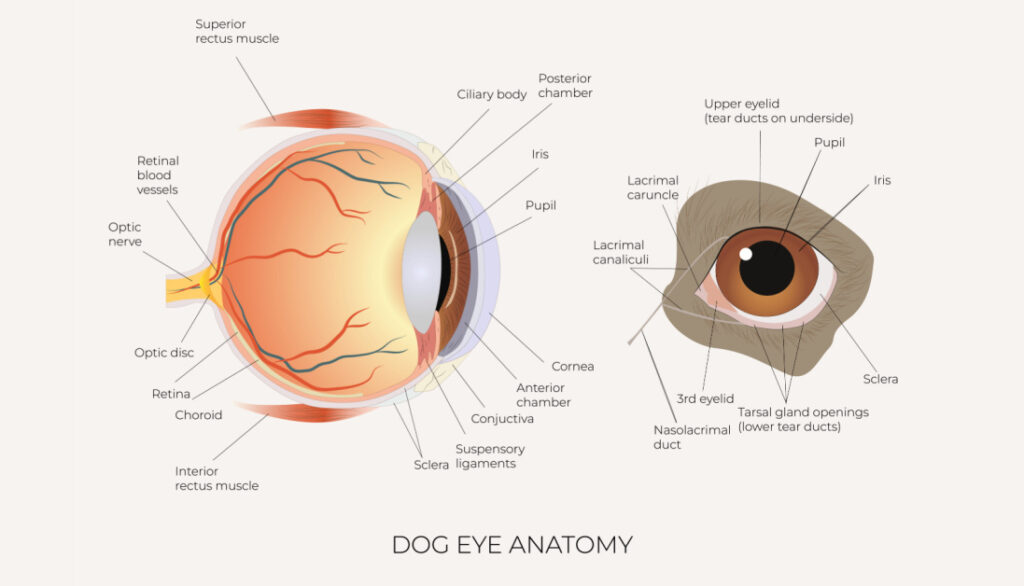
Common Eye Issues In Poodles
As a vet, I often encounter numerous Poodle Eye Health concerns. Poodles are a unique breed with specific eye health challenges. Let’s discuss some of the common conditions and solutions.
Keratoconjunctivitis Sicca (Dry Eye)
This condition occurs when the poodle’s eye doesn’t produce enough tears, leading to a dry and irritated eye. Symptoms include redness, squinting, and a thick discharge. Solutions typically include artificial tears and medications to stimulate tear production.
Progressive Retinal Atrophy (PRA)
PRA is a genetic disorder that gradually deteriorates the retina. This condition can lead to night blindness and eventually total blindness. Unfortunately, there’s no cure, but early detection can help manage the condition and prepare for lifestyle adjustments. Genetic testing can help identify poodles at risk.
Cataracts
Often confused with the normal aging process in poodles, cataracts can cause cloudiness and vision loss. However, they are treatable. Surgery is the most common solution to restore vision.
Cherry Eye
This condition is characterized by a red mass protruding from the dog’s third eyelid. It can be corrected surgically to prevent discomfort and further complications.
Entropion
Entropion is a condition where the eyelid rolls inward, causing the eyelashes to rub against the cornea. It can lead to irritation, pain, and corneal damage. Surgical correction is often the best solution.
Glaucoma
Glaucoma is a serious condition caused by increased pressure in the eye. It can lead to blindness if not treated promptly. Treatment may involve medication to decrease eye pressure or surgery.
As a vet, I recommend that all poodle parents familiarize themselves with these common eye conditions and their solutions. If you notice any changes in your poodle’s eyes, seek veterinary care immediately. Your vigilance can make a significant difference in your furry friend’s eye health.
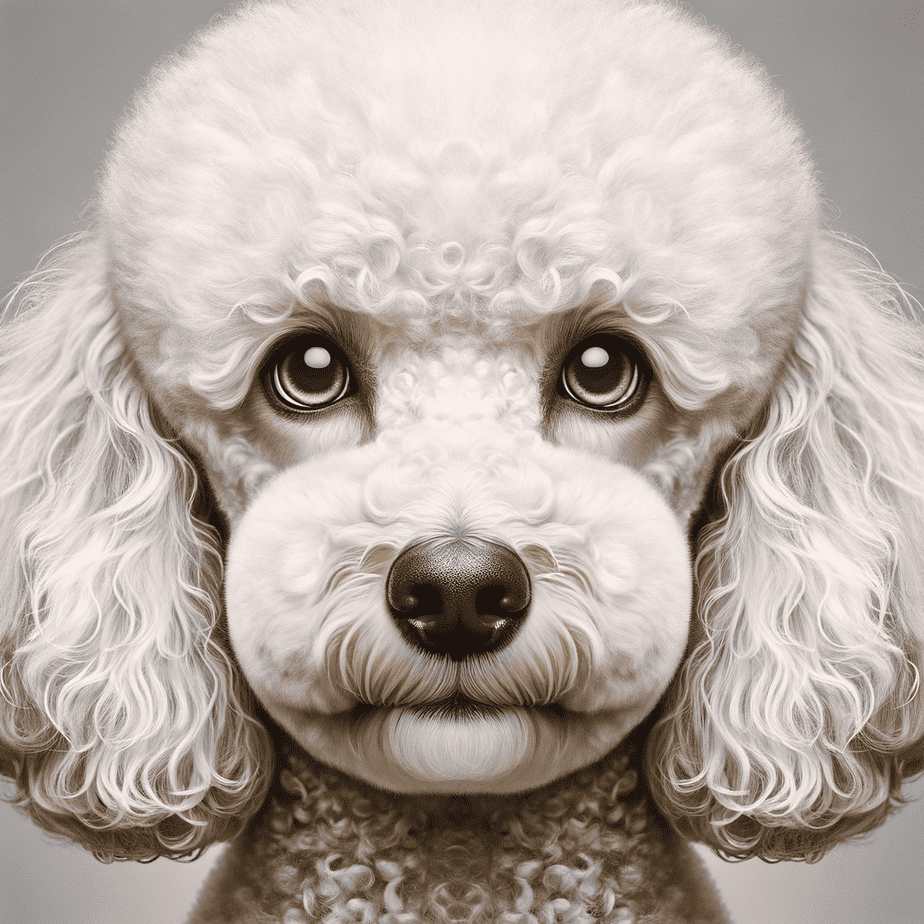
Nourishing Your Dog’s Vision: Essential Nutrients for Eye Health
Ensuring your poodle gets the right nutrients for optimal eye health is essential for maintaining clear vision and preventing age-related issues. Natural, nutrient-rich foods and supplements can play a key role in supporting their eyesight. From vitamin A-packed freeze-dried liver treats to antioxidant-rich blueberries and targeted supplements like Eyeplex by Standard Process, there are several ways to nourish your dog’s eyes. In this section, we’ll explore how these powerful ingredients contribute to long-term vision health and overall well-being.
Eyeplex by Standard Process
Eyeplex by Standard Process is a specialized supplement designed to support your poodle’s eye health with a blend of essential nutrients. Formulated with key vitamins, minerals, and antioxidants, Eyeplex helps protect against oxidative stress, supports retinal function, and promotes overall vision health. Ingredients like vitamin A, vitamin C, and zinc contribute to maintaining strong eyesight, while whole food ingredients provide additional phytonutrients for cellular protection. Adding Eyeplex to your poodle’s diet can be especially beneficial for aging dogs or breeds prone to eye conditions, offering targeted nutritional support to keep their vision sharp and healthy for years to come.
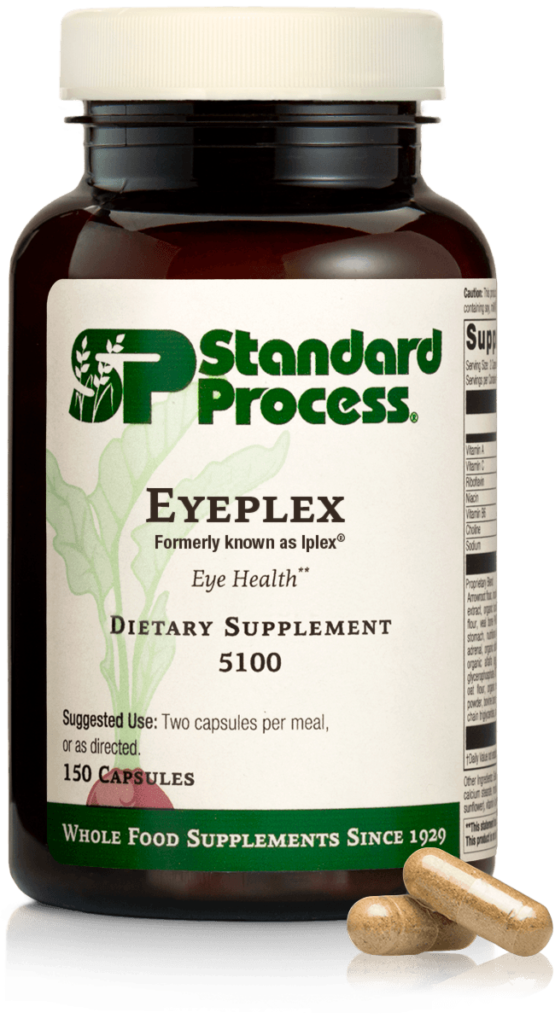
Freeze-Dried Blueberries
Freeze-dried blueberries are a powerhouse of antioxidants that can help protect your poodle’s eyes from oxidative stress and age-related damage. Rich in vitamins C and E, as well as anthocyanins, these tiny but mighty berries help combat free radicals that can contribute to eye diseases like cataracts and macular degeneration. Incorporating freeze-dried blueberries into your dog’s diet provides a natural and delicious way to support retinal health, reduce inflammation, and promote overall vision longevity. Plus, they’re a low-calorie, dog-friendly treat that makes a great addition to a balanced diet for long-term eye health.
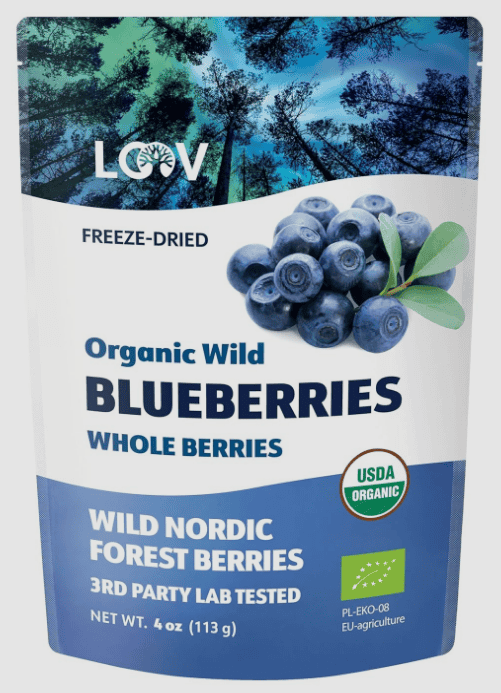
Freeze-Dried Liver
Freeze-dried liver treats are an excellent natural source of vitamin A, an essential nutrient for your poodle’s eye health. Vitamin A plays a crucial role in maintaining good vision, especially in low-light conditions, while also supporting overall immune function and skin health. Since liver is rich in bioavailable vitamin A, incorporating freeze-dried liver treats into your dog’s diet provides a convenient and nutritious way to promote optimal eye function. Just be sure to feed them in moderation, as excessive vitamin A can lead to toxicity. Adding these nutrient-packed treats to your pup’s routine is a simple, tasty way to support their long-term vision and well-being!
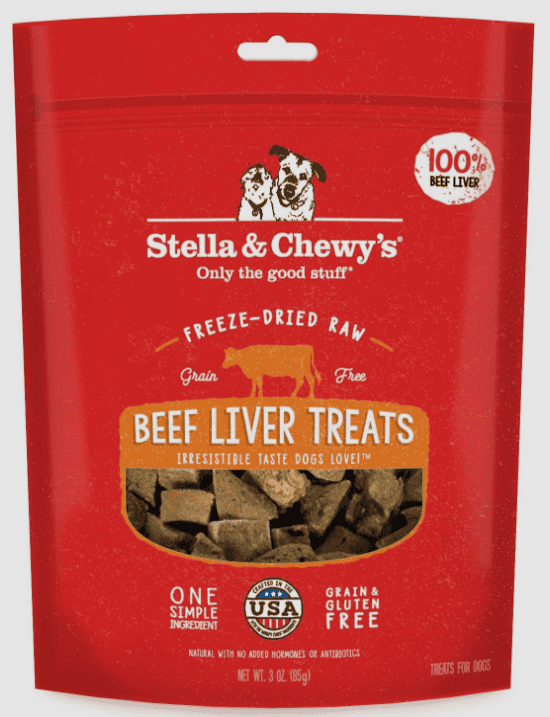
By prioritizing your poodle’s eye health through a balanced diet and nutritional supplements, you can help prevent many common eye issues. These simple steps can go a long way in ensuring your pup’s eyes stay healthy and clear for years to come.
Environmental Hygiene To Reduce Eye Problems
Keeping your poodle’s environment clean is another key factor in preventing eye problems. Ensure good indoor air quality by regularly cleaning and vacuuming to remove dust and allergens that can irritate their eyes. Be cautious when using sprays, diffusers, candles, or incense around your poodle as these can also cause eye irritation.
Routine Poodle Eye Care & Maintenance
Regular grooming is essential for your poodle’s eye health. Keep their hair trimmed around the eyes to prevent irritation and check their eyes daily for any signs of redness, discharge, or inflammation. Regularly cleaning their eyes with a vet-approved solution can also help prevent eye infections.
In conclusion, maintaining your poodle’s eye health requires a holistic approach that includes a balanced diet, nutritional supplements, a clean environment, and regular grooming. Always consult with your vet for personalized advice based on your poodle’s specific needs and health conditions.
Environmental Hygiene To Reduce Eye Problems
As a poodle parent, you know how important it is to keep your furry friend healthy and happy. One aspect of their health that may not be immediately apparent is the role of environmental hygiene in preventing eye problems. Let’s delve into some of the ways you can create a clean and safe environment to help keep your poodle’s eyes in the best possible condition.
Indoor Air Quality
Indoor air quality plays a significant role in your poodle’s eye health. Poor air quality can lead to irritation, dryness, and increased susceptibility to infections. Regularly cleaning your home and maintaining a smoke-free environment are two effective ways to improve air quality. Additionally, consider using an air purifier to eliminate allergens and pollutants that can harm your poodle’s eyes.
Sprays, Diffusers, Candles, Incense
While it’s lovely to have a home that smells nice, certain products like sprays, diffusers, candles, and incense can cause eye irritation in poodles. These products often contain chemicals and fragrances that can be harsh on your poodle’s sensitive eyes. If you must use these products, ensure they are pet-friendly and used in moderation. Alternatively, opt for natural alternatives such as essential oils, but always make sure they are safe for dogs as some can be toxic.
Remember, your poodle’s eyes are delicate, and even small irritants can lead to significant discomfort or health issues. By maintaining a clean and safe environment, you can help prevent eye problems and ensure your poodle’s eyes stay as healthy as possible. After all, their eyes are not just the windows to their souls, but also a vital part of their overall health and well-being.
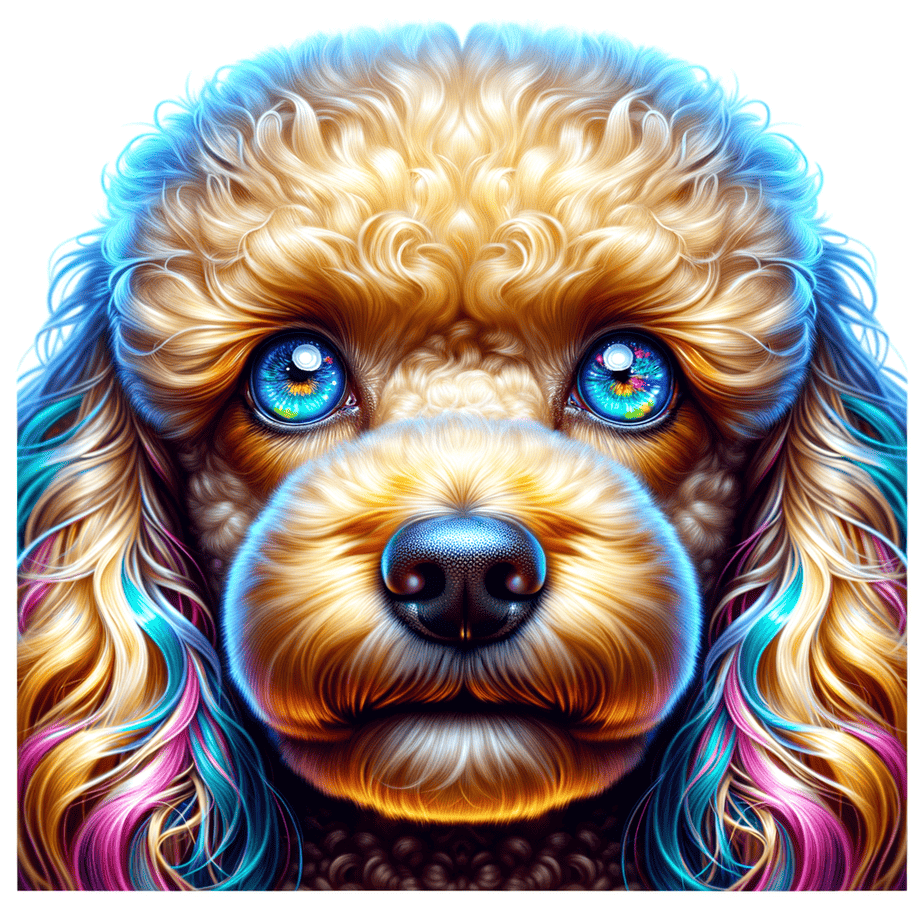
Routine Poodle Eye Care & Maintenance
Daily & Weekly Care & Maintenance
Just like us humans, our furry friends also require regular eye care. Poodle eye health is significantly influenced by daily and weekly care routines. Start by making a daily habit of checking your poodle’s eyes for any signs of redness, discharge, or inflammation. If you notice anything unusual, don’t hesitate to contact your vet.
Use a soft, damp cloth to gently clean around your poodle’s eyes. This can help remove any small particles or dust that may cause irritation. Be careful not to touch the eye directly as this can cause discomfort or even injury.
Weekly, consider using a vet-approved eye cleaning solution. This will help keep the eyes clean and free from potential infections. Also, remember to always dry the area around the eyes after cleaning to prevent the growth of bacteria or yeast.
Monitor Hair Length, Nail Length, Bath Frequency
Maintaining your poodle’s hair length is also critical in preventing eye problems. Long hair can irritate the eyes leading to conditions such as conjunctivitis. Regular grooming and trimming around the eyes can prevent this. A professional groomer can do this, or you can learn to do it at home with the right tools and techniques.
Keeping your poodle’s nails trimmed is equally important. Long nails can lead to accidental scratches on the eyes, especially during play. Regular nail trims, either at home or by a professional, can help avoid this risk.
Lastly, consider your poodle’s bath frequency. While bathing helps keep your pet clean, excessive bathing can lead to dry skin and irritation around the eyes. So, it’s essential to find a balance. Your vet can provide guidance on the right bath frequency for your poodle based on its age, skin condition, and lifestyle.
Poodle eye health isn’t just about treating conditions when they arise but also about preventing them. Regular care and maintenance are crucial in ensuring your poodle’s eyes remain healthy. As always, your vet is the best source of advice for any concerns you might have about your poodle’s eye health.
Frequently Asked Questions
1. What are common eye health conditions in Poodles?
Poodles are prone to various eye health conditions such as cataracts, progressive retinal atrophy (PRA), glaucoma, and dry eye.
2. How can I identify if my Poodle has an eye problem?
Look for signs like redness, excessive tearing, cloudiness, squinting, rubbing or pawing at the eyes, and changes in vision. If you notice any of these symptoms, it’s important to consult a veterinarian.
3. Can Poodle eye problems be treated?
Yes, many Poodle eye problems can be treated. The treatment options depend on the specific condition and its severity. It’s crucial to seek professional veterinary care for proper diagnosis and treatment.
4. How can I prevent eye issues in my Poodle?
Regular eye examinations by a veterinarian are essential for early detection of any potential eye problems. Additionally, keeping your Poodle’s eyes clean, avoiding exposure to irritants, and providing a balanced diet can help maintain good eye health.
5. Can Poodle eye problems lead to blindness?
Some eye conditions, if left untreated, can progress and potentially lead to blindness. Timely diagnosis, appropriate treatment, and regular monitoring can help prevent or manage such complications.
